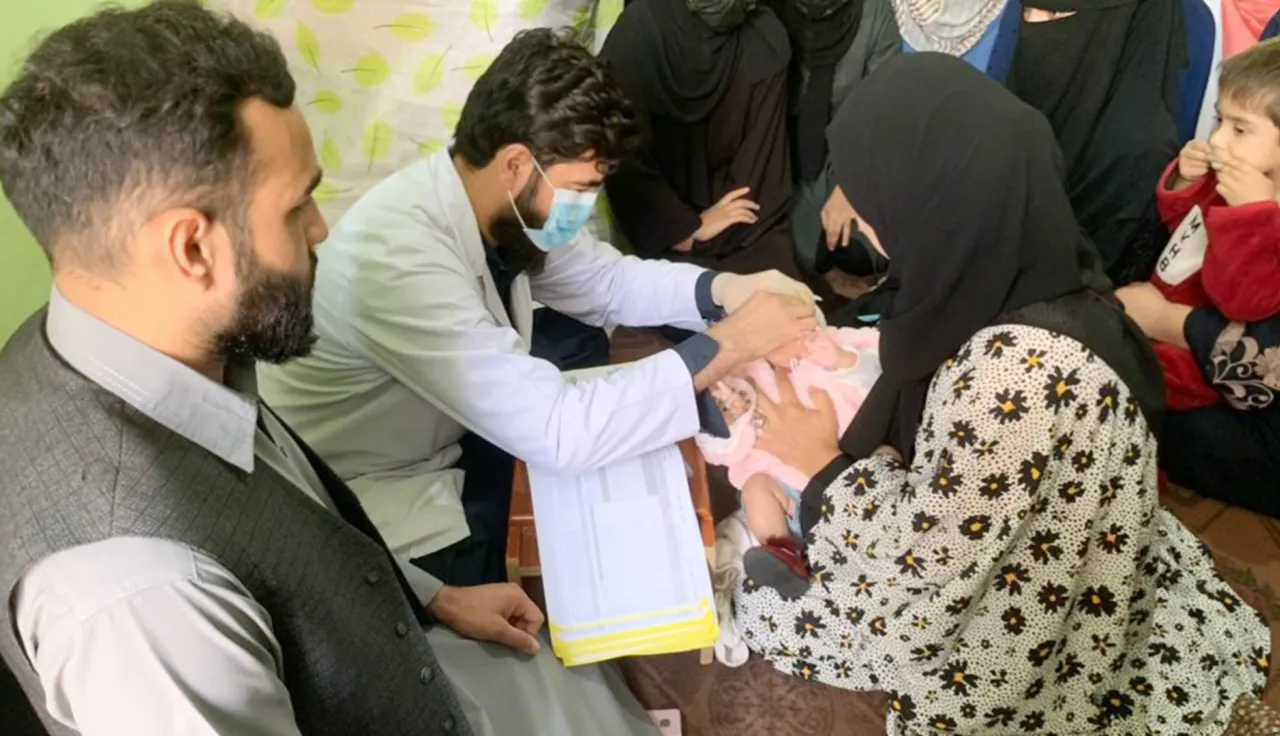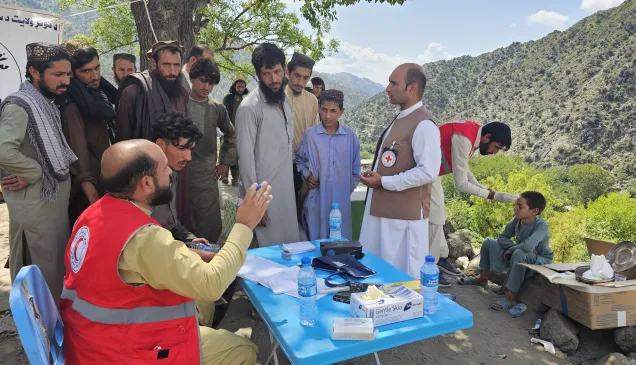Afghanistan: Operational Facts and Figures – 2023

In 2023, families in Afghanistan continued to struggle to meet their basic needs such as affordable food, employment, appropriate shelter and access to health care.
To help reduce these challenges, the International Committee of the Red Cross (ICRC) responded by providing critical assistance such as health care, emergency response, physical rehabilitation services for people with disabilities and restoring essential infrastructure including water and energy supply systems. We also continued to help thousands of people affected by armed violence to rebuild their livelihoods so that they can live with dignity and their physical and mental health are taken care of. We visit places of detention to improve the conditions of detention and ensure that people deprived of their liberty are treated humanely.
A look at the measurable impact of our assistance in 2023:
- 1,202,612 patients, mostly women and children, received primary health care at 47 health facilities of the Afghan Red Crescent Society (ARCS) that are supported by the ICRC.
- 33 hospitals with a capacity of 7,057 beds, serving 26 million people, were supported with their salary and running costs for most part of the year, with around 10,900 health-care workers being paid.
- 206,128 patients were assisted in 7 ICRC-supported physical rehabilitation centres.
- up to 12,000 detainees in 11 prisons across the country received monthly food rations to cover three daily meals. Almost 18,000 detainees in 26 places of detention under different authorities received winter kits to be protected against the harsh cold.
- 213 cases of missing people were resolved and their whereabouts were ascertained.
- 125 Red Cross messages (containing brief family news) and 79 salamats (oral short messages) were exchanged between detainees and their families.
- 10,446 families (83,568 people) received multipurpose cash assistance in Ghazni, Lashkar Gah, Herat, Farah, Kandahar, Kunar, Nangarhar, Kunduz, Samangan, Faryab, Jawzjan and Panjshir to meet their basic needs.
- Over one million people received improved electricity supply through the provision of 75,000 litres of fuel, four diesel generators, electrical equipment and transformers to Da Afghanistan Breshna Sherkat (DABS).
- Over 390,000 people living in rural areas and more than 660,000 people living in urban areas gained access to clean drinking water.
For more details, access the full document below.



